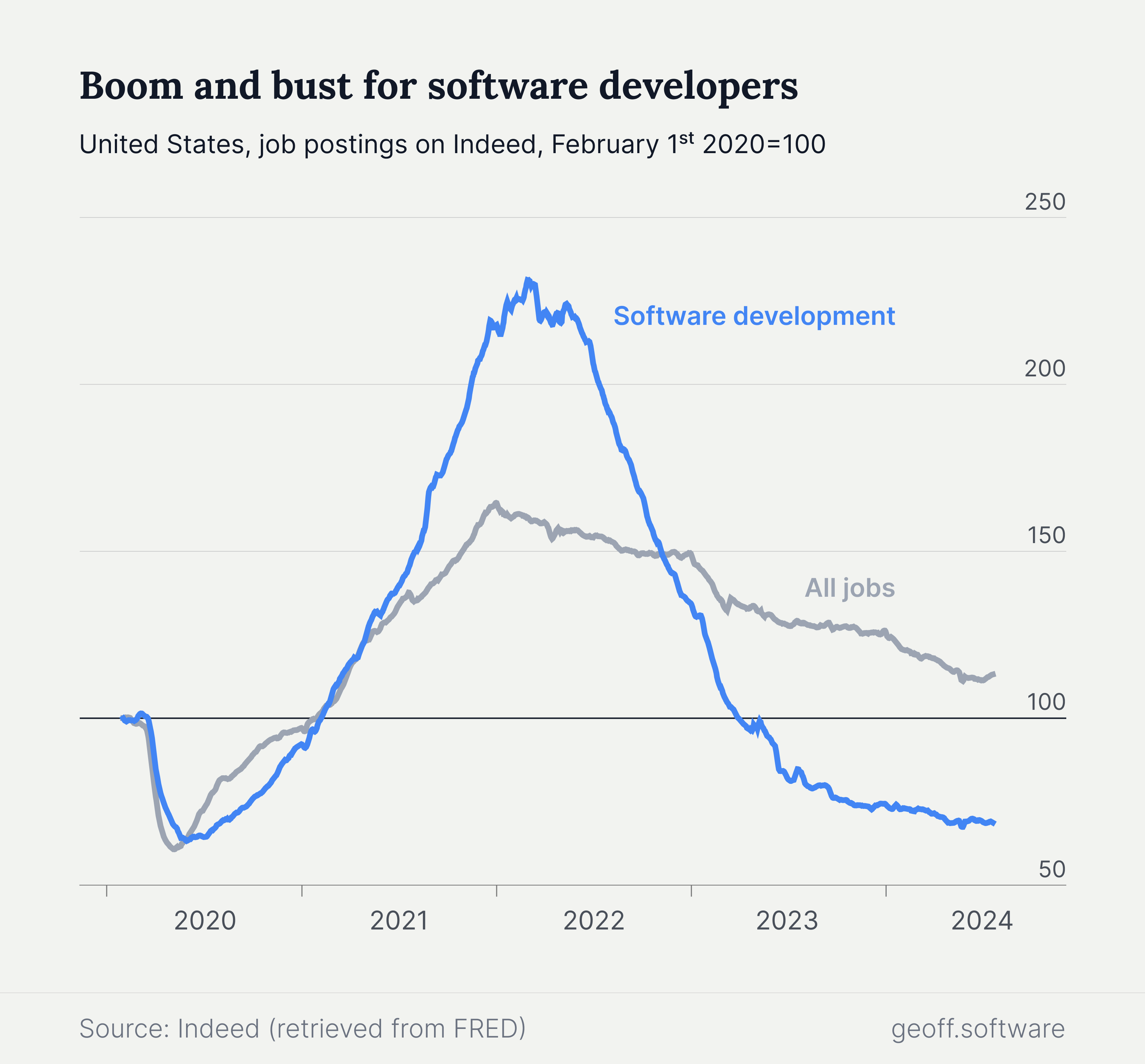The tech industry's pandemic-induced hiring spree has not only subsided but has also shifted itself into reverse. According to data from Indeed, a popular job search website, open positions for software development roles have fallen precipitously since their peak in March of 2022, decreasing by 70% in just over two years.
But such a significant drop does not suggest a return to normalcy. Job postings for software development roles have fallen by nearly a third compared to the months immediately before the first pandemic shutdowns. In contrast, overall job postings are still above pre-pandemic levels. There were 12% more total job postings in July of 2024 than there were in February of 2019.

Some technologists attribute these sudden changes to the rise of AI-assisted software development. A study conducted by Microsoft and Accenture showed that developers accepted around 30% of GitHub Copilot suggestions and retained 88% of GitHub Copilot-generated characters. Such an impact is playing out across the entire software development profession. Most developers already use AI in their day-to-day work; according to a recent survey from Stack Overflow, 63% percent of developers said they use AI tools in the development process.
Developer forums are rife with complaints about a lack of junior positions. Aspiring developers worry that companies would rather invest in AI tools than spend resources training the next generation of software developers.
A rush to infuse AI into software development comes on the heels of rising costs to build digital products. Software developers are one of the highest paid positions in the United States, earning about $130k on average — even more in hyper-competitive markets like San Francisco and New York.
Some believe AI can ease or eliminate such cost bottlenecks. Paul Kedrosky and Eric Norlan, partners at SK Ventures, predict a collapse in developer salaries during what they call software's "Gutenberg moment". They argue the cost of writing and building software will trend toward zero. "A software industry where anyone can write software, can do it for pennies, and can do it as easily as speaking or writing text, is a transformative moment."